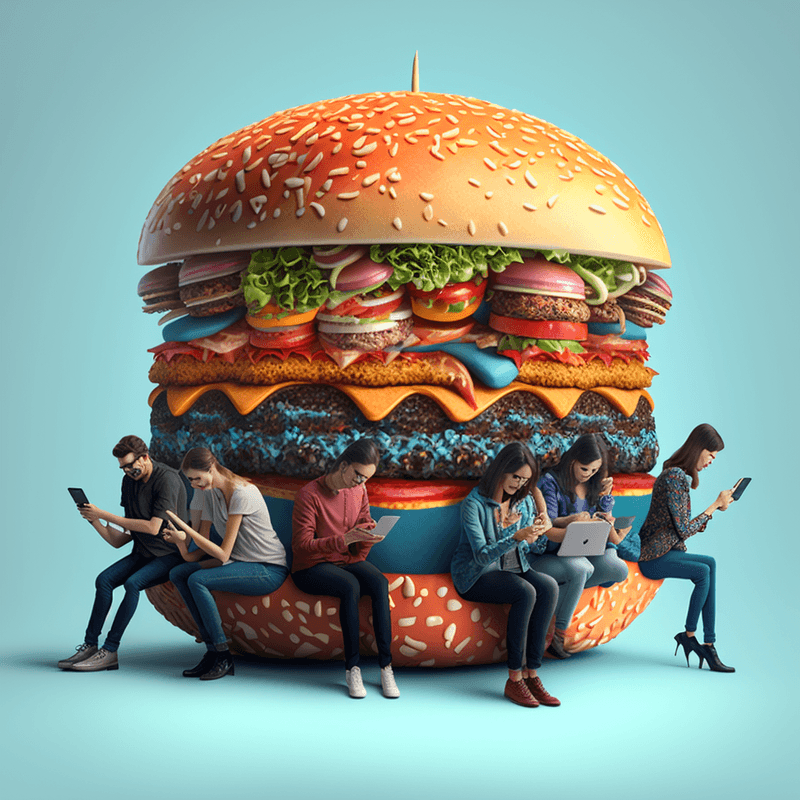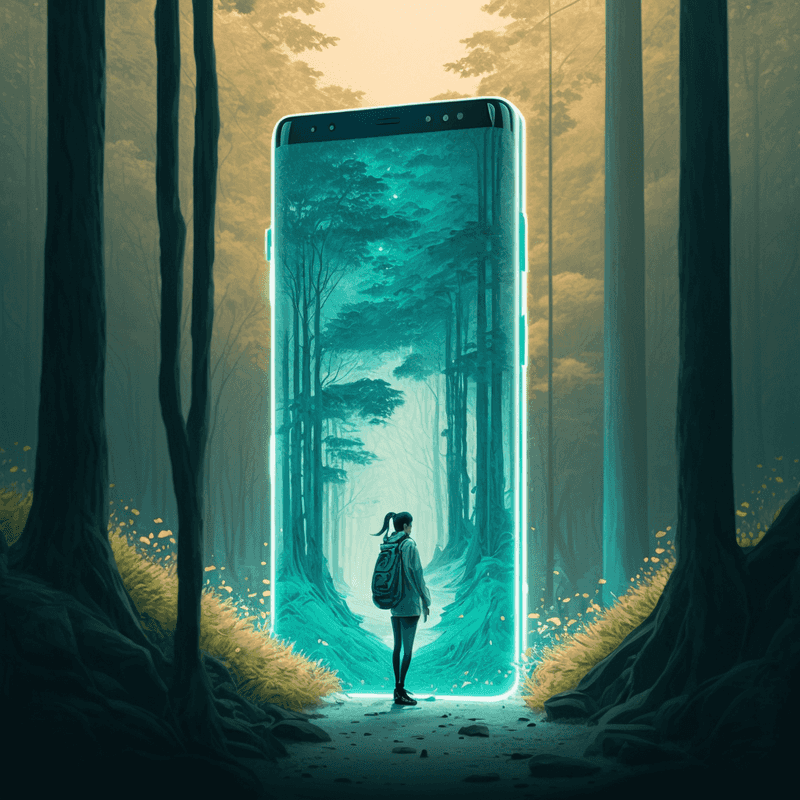Applying the Principles of Nutrition to Your Digital Life
December 26, 2022
All around me, I am observing people become more mindful of what food they consume. Concepts such as calories, nutrition labels, and organic foods have become a part of everyday life. With this shift in mindset towards physical health and nutrition, I am curious as to why there isn’t a similar emphasis placed on our digital “diets”.
Social media platforms, for instance, are unabashedly trying to steal as much of our attention as possible to generate ad revenue. That is no secret. However, what is lesser known is just how consequential this is for our primal brains and how that cascades into global societal catastrophes.
My friend recently shared the Ledger of Harms (from the Center for Humane Technology) with me, whose mission is thus:
Under immense pressure to prioritize engagement and growth, technology platforms have created a race for human attention that’s unleashed invisible harms to society. Here are some of the costs that aren't showing up on their balance sheets.
We hope these factoids, each supported by a citation, help to advance your work. Please share with others who might also find them useful.
I was blown away by some of their snippets.
3 months after starting to use a smartphone, users experience a significant decrease in their mental arithmetic scores (indicating a reduction in their attentional capacity) and a significant increase in social conformity, as shown by experiments with 25 year olds using randomized controlled trials.
In addition, brain scans show that heavy users have significantly reduced neural activity in their right prefrontal cortex, a condition also seen in ADHD, and linked with serious behavioral abnormalities such as impulsivity and poor attention.
Source: Hadar, A., Hadas, I., Lazarovits, A., Alyagon, U., Eliraz, D., & Zargen, A., 2017. PLoS One Via: Ledger of Harms
We are so distracted by our phones that we often fail to see the most basic things, sometimes at great cost to ourselves and others.
Security camera footage from San Francisco public transit reveals that a gunman was able to pull out his gun and openly handle it at length without anyone noticing, before he eventually shot a fellow passenger.
Source: O’Connor, L., 2013. Huffington Post Via: Ledger of Harms
I am convinced that researchers will look back upon how our world changed post-internet and be shocked at how we gave billions of people unrestrained access to highly addictive platforms.
Big tech companies are rolling out tools to aid digital well-being, but they are hugely incentivised not to make these efficacious. Ultimately, the responsibility falls upon us in lieu of any meaningful regulation in this space.
We must be mindful of not just ‘what’ we are consuming but also ‘how’ and take conscious steps to ensure we aren’t over-indulging. This is where the nutrition metaphor can be helpful.
Just like how we consider the amount of sugar in a food item, we need to be mindful of how addictive certain content is. Similarly, when we binge eat, especially nutrient-deficient foods, it has repercussions for our physical energy and health. Likewise, when we mindlessly scroll through social media for hours on end, it can extract a toll in the form of mental fatigue and brain fog and worsen over time.
To simplify this, we can even map it back to the core tenets of nutrition:
-
Follow a balanced diet - Consume content from a variety of sources. Try to hear viewpoints different from yours and explore topics that are not always popular.
-
Be mindful of portions - Give yourself tech breaks, and be mindful of how long you spend on different platforms.
-
Limit “junk” - Cut down on content that is detrimental to your mental health. Silence notifications that pull you into digital black holes.
Like our foods, our digital consumption choices must be made with intention. We should make an effort to opt for digital nutrition that provides sustained energy, clarity of thought, and mental nourishment.
I would have liked to share a few practical ways to implement some of what I have suggested here. However, this post has already run longer than I’d have liked, so I’ll leave that for another time. Let me know if you’re interested in hearing my strategies for regulating my online consumption. :)

